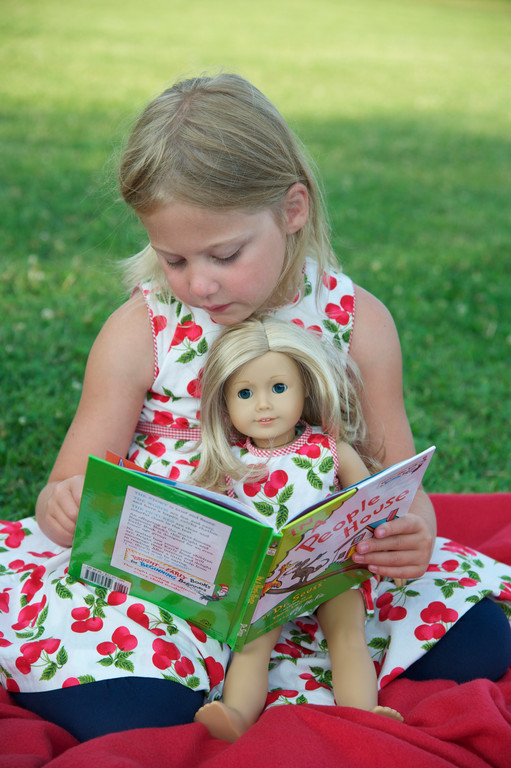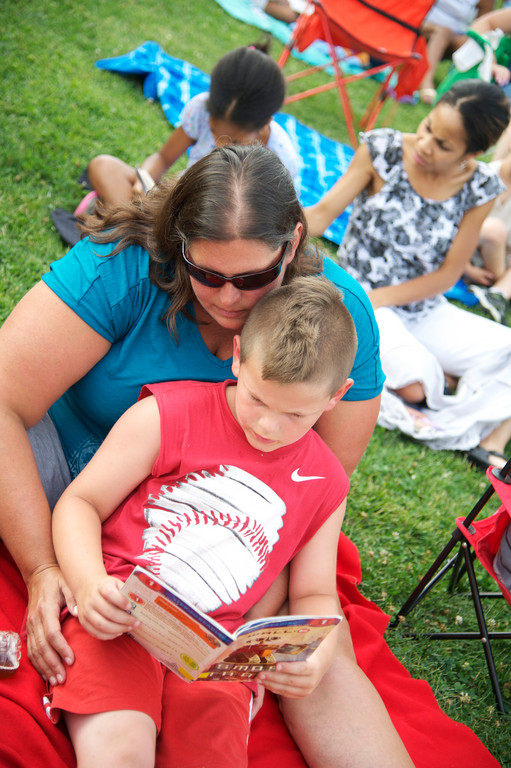Principals hold summer readings at gazebo
Taking a cue from the longstanding Monday-night Summer Gazebo Readings, the principals of the Oceanside elementary schools decided to host their own summer readings on the Schoolhouse Green for students in kindergarten through third grade.
The Principals’ Summer Reading Series, as it is called, is designed to keep kids reading during the summer and combat the “summer slide”: the idea that students sometimes lose some of the skills they developed during the school year over the long, lazy summer.
“The idea was born out of a conversation among our elementary school principals,” said Robert Fenter, the district’s assistant superintendent for curriculum. “Mr. [Thomas] Capone” — the principal of School 2 — “kind of started a conversation with his colleagues about the idea of continuing the desire for reading among our students over the course of the summer.”
The readings are held on Wednesdays through August, and feature a different school each week. The principal meets with students and family members at the gazebo on the Schoolhouse Green, on Foxhurst Road, at 6:30 p.m. The evening starts with the principal reading one of his or her favorite books to the kids, who are third-graders or younger.
“We thought the venue was just a wonderful opportunity for students of this age,” said Fenter. “We also believe that the youngest students are at the most critical stage of their reading development. It would certainly be more beneficial for kids at the youngest grades to continue to practice this important skill. We also thought they’d love it.”
After listening to their principal read, the children break off and spend time with their families, reading and talking about the book. There are also other activities for them. And the students who are taking part in the library’s Summer Reading Program get credit for the Wednesday-night sessions.
“What we’re planning on doing is activities based on the read-aloud that the principal does,” Fenter said. “They’re then going to give each of the students a question to discuss with their family, based on the reading that they did. We’re going to try to have limited materials because we don’t have places for kids to color or write or draw, so we’re going to try to keep it an interactive experience between the kids and their families.”
The goal, Fenter said, is to not only encourage reading in young students, but to bring the community together. “It truly feels like a community event,” he said. “And it wouldn’t be possible if we didn’t have these amazing people running our elementary schools.”

 51.0°,
Fog/Mist
51.0°,
Fog/Mist 







